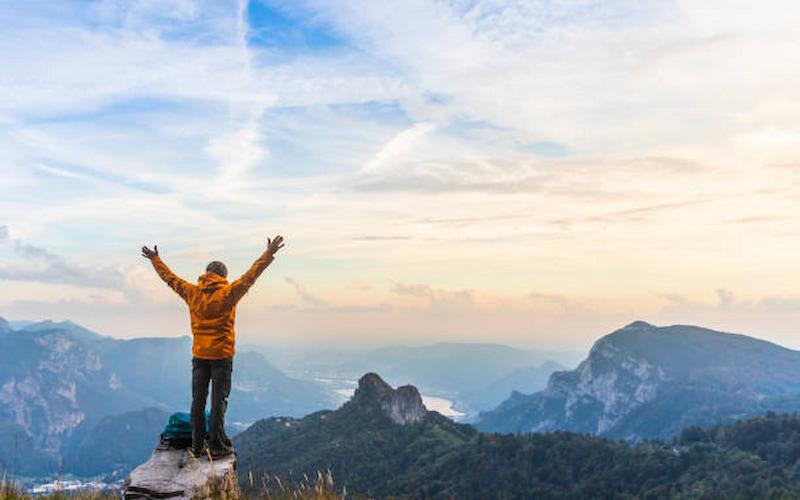Top 10 Historical Sites in Argentina You Shouldn’t Miss

Argentina is a country where history, culture, and natural beauty meet in perfect harmony. From ancient indigenous civilizations to colonial-era towns and sites of modern significance, Argentina offers travelers countless opportunities to step back in time. Whether you’re fascinated by Inca ruins, European-style architecture, or monuments of political history, Argentina has it all. If you’re planning your journey and securing your Argentina Travel Visa by Go Kite, here are ten must-visit historical landmarks you simply cannot miss.
1. Casa Rosada – Buenos Aires
The iconic pink presidential palace in Buenos Aires is more than just a building—it’s a symbol of Argentina’s political history. Casa Rosada, meaning “Pink House,” overlooks Plaza de Mayo and has witnessed some of the most pivotal moments in the nation’s story. Visitors can tour the museum inside, which houses presidential artifacts and documents, offering a fascinating glimpse into Argentina’s political evolution.
2. San Ignacio Miní – Misiones Province
Dating back to the 17th century, San Ignacio Miní is one of the best-preserved Jesuit missions in South America. Declared a UNESCO World Heritage Site, its stone ruins reveal the story of Jesuit priests who built communities with the indigenous Guaraní people. Walking among its red sandstone structures transports you to a time when religion and culture intertwined in the jungle.
3. Catedral Metropolitana – Buenos Aires
The Metropolitan Cathedral in Buenos Aires is not only a stunning religious site but also a landmark deeply tied to Argentina’s history. Its neoclassical façade hides a richly decorated interior, where General José de San Martín, the liberator of Argentina, rests. For travelers seeking both beauty and history, this cathedral is a must-see.
4. The Ruins of Quilmes – Tucumán Province
Nestled at the foot of the Calchaquí Valley, the Quilmes Ruins are remnants of one of Argentina’s largest pre-Columbian settlements. The Quilmes people resisted Spanish conquest for over 100 years, making these ruins a symbol of resilience. Visitors can explore stone structures, terraces, and fortifications while enjoying breathtaking views of the surrounding valley.
5. Teatro Colón – Buenos Aires
Considered one of the finest opera houses in the world, Teatro Colón is a masterpiece of art and architecture. First opened in 1908, it has hosted legendary performers like Luciano Pavarotti and Maria Callas. Even if you don’t attend a show, a guided tour reveals its rich history, grand design, and acoustic perfection that continues to impress audiences today.
6. Humahuaca and the Quebrada – Jujuy Province
The Quebrada de Humahuaca, another UNESCO World Heritage Site, is not only geologically stunning but also historically significant. This ancient trade route was used for thousands of years by indigenous communities and later by Spanish colonizers. The town of Humahuaca is filled with cobbled streets, colonial buildings, and the iconic Independence Monument, blending history with breathtaking landscapes.
7. Estancia Santa Catalina – Córdoba Province
If you want to explore Argentina’s colonial heritage, the Jesuit Estancias of Córdoba are a must. Santa Catalina, the largest of these estates, showcases baroque architecture and religious history. Established in the 17th century, the estate played a crucial role in education and agriculture. Today, it stands as a window into Argentina’s Jesuit legacy.
8. Malvinas War Memorial – Ushuaia
Located in the southernmost city of the world, Ushuaia’s Malvinas War Memorial is a solemn tribute to the soldiers who fought in the 1982 conflict between Argentina and the United Kingdom. While small, the monument is deeply meaningful and reminds visitors of Argentina’s modern history and the sacrifices made by its people.
9. Cabildo de Buenos Aires – Plaza de Mayo
Once the seat of colonial government, the Cabildo is a striking white building that played a central role in Argentina’s independence movement. Today, it operates as a museum showcasing artifacts from the colonial era. Visiting the Cabildo is like stepping into the early chapters of Argentina’s journey toward freedom.
10. El Shincal de Quimivil – Catamarca Province
Often compared to Machu Picchu, El Shincal is one of the most important Inca archaeological sites in Argentina. Built during the Inca expansion in the 15th century, it includes plazas, temples, and ceremonial spaces surrounded by mountains. Exploring El Shincal offers an unforgettable glimpse into the life and spirituality of the Inca Empire.
Why These Historical Sites Matter
Argentina’s historical landmarks tell the story of its people—from ancient indigenous communities to colonial settlers and modern patriots. Each site is not just a monument but a living reminder of resilience, faith, and cultural fusion. For travelers, visiting these destinations means experiencing history firsthand, while enjoying Argentina’s warm hospitality and diverse landscapes.
Plan Your Journey with Ease
Exploring Argentina’s history is an adventure that deserves careful planning. Before you set out to admire the Quilmes Ruins, the Jesuit missions, or Buenos Aires’ architectural marvels, ensure your travel documents are ready. With Argentina Travel Visa by GoKite, you can enjoy a seamless visa process, leaving you more time to focus on your trip and the incredible experiences that await.
So, are you ready to walk through centuries of history in Argentina? Let GoKite guide you with reliable Argentina Visa Assistance – Go Kite and start planning your unforgettable journey today!
- AI
- Vitamins
- Health
- Admin/office jobs
- News
- Art
- Causes
- Crafts
- Dance
- Drinks
- Film
- Fitness
- Food
- Games
- Gardening
- Health
- Home
- Literature
- Music
- Networking
- Other
- Party
- Religion
- Shopping
- Sports
- Theater
- Wellness


